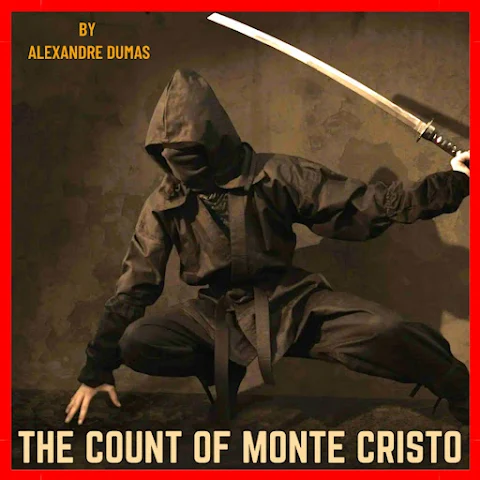Introduction
The female characters in The Count of Monte Cristo represent a fascinating study in 19th-century gender roles while simultaneously transcending the limitations of their era. Through their complex portrayals, these women emerge as powerful forces that shape the narrative, influence major decisions, and often determine the fate of key characters. This comprehensive analysis explores their multifaceted roles, examining how their actions, choices, and relationships drive the story's development while offering insight into both historical and timeless aspects of feminine power and influence.
Dumas crafts his female characters with remarkable depth, allowing them to navigate the constraints of their society while maintaining their individual agency. Their influence extends beyond traditional romantic roles, encompassing political machinations, moral guidance, and social commentary. Through these characters, the novel explores themes of loyalty, revenge, justice, and redemption from a uniquely feminine perspective.
Listen to Key Female Character Scenes:
Listen on SpotifyMercédès: Love, Loyalty, and Moral Courage
Character Analysis
Mercédès stands as one of literature's most complex and nuanced female characters, embodying both the constraints of her time and the timeless struggle between love, duty, and personal integrity. Her journey from a young, passionate woman to a figure of profound moral wisdom forms one of the novel's most compelling character arcs.
Early Portrait: Youth and Innocence
- Initial Characterization
- Vibrant Catalonian beauty with natural grace and dignity
- Pure, unconditional love for Edmond Dantès
- Strong sense of personal loyalty and devotion
- Innocent faith in justice and human goodness
- Relationship with Dantès
- Deep emotional connection transcending social class
- Shared dreams of a simple, honest life together
- Mutual trust and understanding
- Symbol of hope and future happiness
- Social Context
- Position as a working-class woman in Marseilles
- Cultural influences of Catalonian heritage
- Community expectations and limitations
- Economic realities of her situation
Life's Crucible: Choices and Consequences
- Critical Decisions
- Marriage to Fernand amid uncertainty and grief
- Adaptation to aristocratic life as Countess de Morcerf
- Protection of her son Albert's innocence
- Confrontation with the truth about Fernand
- Moral Evolution
- Wrestling with guilt and responsibility
- Development of deeper moral understanding
- Balance between maternal love and truth
- Growth from passive acceptance to active choice
- Personal Transformation
- Journey from innocent girl to wise woman
- Development of moral courage and integrity
- Integration of past and present identities
- Finding strength in adversity
Final Arc: Wisdom and Redemption
- Moral Courage
- Recognition and acceptance of past mistakes
- Sacrifice of social position for truth
- Protection of son through honest revelation
- Reclaiming of personal dignity
- Resolution
- Reconciliation with past through acceptance
- Achievement of moral clarity and peace
- Influence on Monte Cristo's path to redemption
- Legacy of truth and courage
Valentine de Villefort: Innocence Amid Intrigue
Complex Character Analysis
Valentine de Villefort stands as a compelling example of feminine resilience in the face of familial and societal pressures. Her character arc demonstrates the struggle between duty and personal happiness, while highlighting the impact of patriarchal control on young women in 19th-century France.
Character Foundation
- Personal Qualities
- Natural grace and gentle disposition
- Strong moral compass despite surroundings
- Emotional intelligence and empathy
- Inner strength beneath exterior fragility
- Family Position
- Complex relationship with father
- Deep bond with grandfather Noirtier
- Target of stepmother's machinations
- Heir to significant fortune
- Social Context
- Position in Parisian society
- Marriage expectations
- Financial considerations
- Family reputation burden
Personal Journey
- Emotional Development
- Growth through adversity
- Love's transformative power
- Trust in divine providence
- Courage in crisis
- Relationship Dynamics
- Pure love with Maximilian
- Protective bond with Noirtier
- Navigation of family politics
- Trust in Monte Cristo
- Personal Growth
- Finding inner strength
- Developing independence
- Maintaining hope
- Achieving autonomy
Symbolic Significance
- Narrative Role
- Representation of innocence
- Victim of circumstance
- Symbol of hope
- Vehicle for justice
- Thematic Importance
- Love versus duty conflict
- Family loyalty themes
- Justice and redemption
- Faith and perseverance
- Character Impact
- Influence on plot development
- Role in revenge scheme
- Connection to major themes
- Resolution significance
Eugénie Danglars: Defying Convention
A Study in Female Independence
Eugénie Danglars represents one of the novel's most revolutionary characters, challenging 19th-century gender norms and societal expectations. Her fierce independence and artistic ambitions make her a uniquely modern figure in the narrative.
Character Essence
- Personality Traits
- Fierce independence and determination
- Intellectual curiosity and artistic talent
- Rejection of traditional feminine roles
- Courage to pursue personal freedom
- Personal Identity
- Artistic ambitions and talents
- Sexual and gender nonconformity
- Intellectual sophistication
- Self-defined purpose
- Social Position
- Daughter of wealth and privilege
- Expected role in society
- Marriage market pressures
- Family expectations
Rebellion and Liberation
- Social Defiance
- Rejection of arranged marriage
- Pursuit of artistic career
- Challenge to gender norms
- Creation of independent path
- Personal Freedom
- Financial independence pursuit
- Emotional autonomy
- Identity affirmation
- Life on own terms
- Artistic Expression
- Musical talent development
- Creative passion
- Artistic community
- Self-realization through art
Cultural Significance
- Gender Commentary
- Challenge to patriarchal norms
- Female independence model
- Alternative life paths
- Social criticism
- Literary Impact
- Progressive character representation
- Modern feminist themes
- Social reform commentary
- Narrative innovation
- Historical Context
- 19th-century women's rights
- Artistic women's status
- Social mobility questions
- Cultural transitions
Historical Context
Women in 19th Century France: A Complex Social Landscape
The female characters in The Count of Monte Cristo exist within the specific historical context of 19th-century French society, where women's roles were strictly defined yet increasingly challenged. Understanding this context enriches our appreciation of the characters' choices and constraints.
Social Hierarchy and Class Distinctions
- Aristocratic Women
- Privileged but restricted lifestyle
- Marriage as social strategy
- Salon culture influence
- Reputation management
- Middle-Class Women
- Emerging bourgeois values
- Domestic sphere focus
- Educational opportunities
- Social aspirations
- Working-Class Women
- Economic necessity
- Limited opportunities
- Social vulnerability
- Community support systems
Legal and Social Framework
- Legal Status
- Napoleonic Code restrictions
- Property rights limitations
- Marriage contract importance
- Guardianship requirements
- Marriage Institution
- Contractual nature
- Family alliances
- Dowry system
- Social obligations
- Educational Access
- Class-based disparities
- Convent education role
- Practical vs. academic focus
- Emerging opportunities
Cultural Expectations and Social Norms
- Behavioral Standards
- Modesty requirements
- Social etiquette
- Public appearance rules
- Moral expectations
- Domestic Responsibilities
- Household management
- Child-rearing duties
- Family reputation maintenance
- Social networking
- Social Activities
- Acceptable entertainments
- Religious obligations
- Charitable work
- Cultural pursuits
Emerging Changes and Challenges
- Social Reform Movements
- Women's rights awareness
- Educational reform efforts
- Political consciousness
- Literary influences
- Economic Changes
- Industrial revolution impact
- New work opportunities
- Class mobility possibilities
- Financial independence concepts
- Cultural Transitions
- Romantic movement influence
- Artistic expression
- Literary participation
- Social role evolution
Literary Significance and Thematic Impact
Narrative and Thematic Contributions
The female characters in The Count of Monte Cristo demonstrate Dumas' masterful understanding of women's complex social positions and their capacity for both strength and vulnerability in 19th-century society. Through these characters, the novel explores fundamental themes while offering nuanced commentary on gender roles and social expectations.
Thematic Development
- Love and Loyalty
- Complex romantic relationships
- Maternal devotion exploration
- Friendship and sacrifice
- Loyalty's consequences
- Power and Agency
- Female influence methods
- Social navigation strategies
- Personal autonomy pursuit
- Resistance to patriarchy
- Justice and Morality
- Ethical decision-making
- Moral courage examples
- Truth versus loyalty
- Redemption possibilities
Narrative Functions
- Plot Development
- Catalyst roles
- Conflict generation
- Resolution facilitation
- Story progression
- Character Dynamics
- Relationship complexity
- Motivation revelation
- Character growth catalyst
- Emotional depth
- Social Commentary
- Gender role critique
- Class system analysis
- Power structure examination
- Moral framework exploration
Literary Innovation
- Character Complexity
- Psychological depth
- Moral ambiguity
- Development arcs
- Internal conflicts
- Narrative Technique
- Multiple perspectives
- Parallel storylines
- Symbol and metaphor
- Dramatic tension
- Genre Contribution
- Romance evolution
- Adventure elements
- Social novel aspects
- Psychological depth
Conclusion: The Enduring Impact of Female Characters
Through its diverse and complex female characters, The Count of Monte Cristo offers a nuanced exploration of women's roles that transcends its historical context. These characters demonstrate not only the constraints and expectations of 19th-century society but also the universal themes of love, loyalty, courage, and personal integrity that continue to resonate with modern readers.
From Mercédès' journey of moral courage to Valentine's resilient spirit and Eugénie's revolutionary independence, each character contributes unique perspectives on feminine power and agency. Their stories interweave with and often drive the main narrative, creating a rich tapestry of human experience that elevates the novel beyond a simple revenge tale.
Dumas' portrayal of these women reveals his deep understanding of both the social complexities of his time and the timeless aspects of human nature. Through their struggles, choices, and transformations, these characters offer valuable insights into the nature of power, the importance of moral courage, and the eternal conflict between societal expectations and personal truth.



